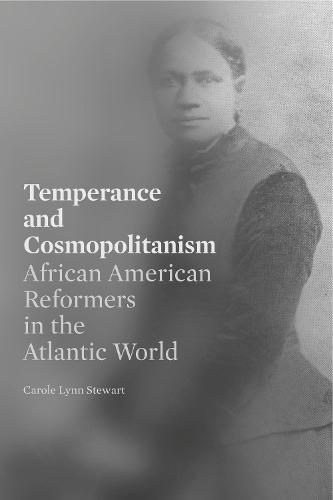Full Product Details
Author: Carole Lynn Stewart (Associate Professor, Brock University)
Publisher: Pennsylvania State University Press
Imprint: Pennsylvania State University Press
Volume: 1
Dimensions:
Width: 15.20cm
, Height: 15.20cm
, Length: 22.90cm
Weight: 0.404kg
ISBN: 9780271090238
ISBN 10: 0271090235
Pages: 232
Publication Date: 26 February 2021
Audience:
Professional and scholarly
,
Professional & Vocational
Format: Paperback
Publisher's Status: Active
Availability: Manufactured on demand

We will order this item for you from a manufactured on demand supplier.
Reviews
Stewart offers readers a theoretically rich, at times dizzying, account of the various ways Black creative writers, evangelists, and political activists connected cosmopolitanism to innovative practices of resistance and liberation. -Stefan M. Wheelock, American Literary History In this study Carole Lynn Stewart shows how a group of enslaved, ex-enslaved, or fugitive African American women and men, through international travel, imaginative vision, and intellectual insight, critically expanded the practice and ideal of temperance from an individualistic, inner purity blind to the corruption of a civic order that tolerated slavery and enabled temperance to a serve as the vital basis for both the inward and societal meanings of freedom. -Charles H. Long, author of Significations: Signs, Symbols, and Images in the Interpretation of Religion An original, nuanced, and theoretically robust work of scholarship that will quickly prove to be a tremendous addition to our understanding of race, religion, politics, and public life. Stewart critically reads the multiple languages and expressions of freedom as amalgams that form and inform the multiple meanings of the world and human experience. By deeply probing the complex contours of the temperance movement against the backdrop of the Atlantic world, Stewart adds rich texture and offers fresh perspectives on this protean international movement. -Corey D. B. Walker, author of A Noble Fight: African American Freemasonry and the Struggle for Democracy in America Exploring a world torn by the foundational fractures forced by the system of slavery and racial control, Stewart uncovers a history of reform that challenges our understanding of place and mobility in African American history. She considers such writers as William Wells Brown, Martin Delany, George Moses Horton, Frances Harper, and Amanda Berry Smith, finding in their works a cosmopolitan determination to reorient American culture from the ground up. Anyone interested in African American literary and cultural history will want to read this important book. -John Ernest, author of Chaotic Justice: Rethinking African American Literary History This book speaks softly and carries a big wallop. Through precise readings and meticulous historical research, Stewart demonstrates that there was a common transnational epistemology uniting black reformers. Highly recommended. -Kathryn Lofton, author of Consuming Religion
In this study Carole Lynn Stewart shows how a group of enslaved, ex-enslaved, or fugitive African American women and men, through international travel, imaginative vision, and intellectual insight, critically expanded the practice and ideal of temperance from an individualistic, inner purity blind to the corruption of a civic order that tolerated slavery and enabled temperance to a serve as the vital basis for both the inward and societal meanings of freedom. -Charles H. Long, author of Significations: Signs, Symbols, and Images in the Interpretation of Religion An original, nuanced, and theoretically robust work of scholarship that will quickly prove to be a tremendous addition to our understanding of race, religion, politics, and public life. Stewart critically reads the multiple languages and expressions of freedom as amalgams that form and inform the multiple meanings of the world and human experience. By deeply probing the complex contours of the temperance movement against the backdrop of the Atlantic world, Stewart adds rich texture and offers fresh perspectives on this protean international movement. -Corey D. B. Walker, author of A Noble Fight: African American Freemasonry and the Struggle for Democracy in America Exploring a world torn by the foundational fractures forced by the system of slavery and racial control, Stewart uncovers a history of reform that challenges our understanding of place and mobility in African American history. She considers such writers as William Wells Brown, Martin Delany, George Moses Horton, Frances Harper, and Amanda Berry Smith, finding in their works a cosmopolitan determination to reorient American culture from the ground up. Anyone interested in African American literary and cultural history will want to read this important book. -John Ernest, author of Chaotic Justice: Rethinking African American Literary History This book speaks softly and carries a big wallop. Through precise readings and meticulous historical research, Stewart demonstrates that there was a common transnational epistemology uniting black reformers. Highly recommended. -Kathryn Lofton, author of Consuming Religion
Author Information
Carole Lynn Stewart is Professor of English Language and Literature at Brock University and the author of Strange Jeremiahs: Civil Religion and the Literary Imaginations of Jonathan Edwards, Herman Melville, and W. E. B. Du Bois.




